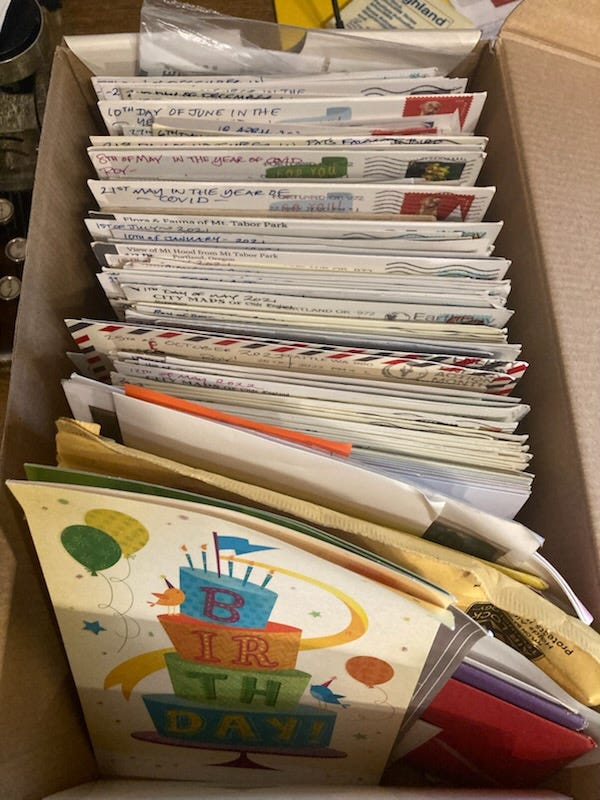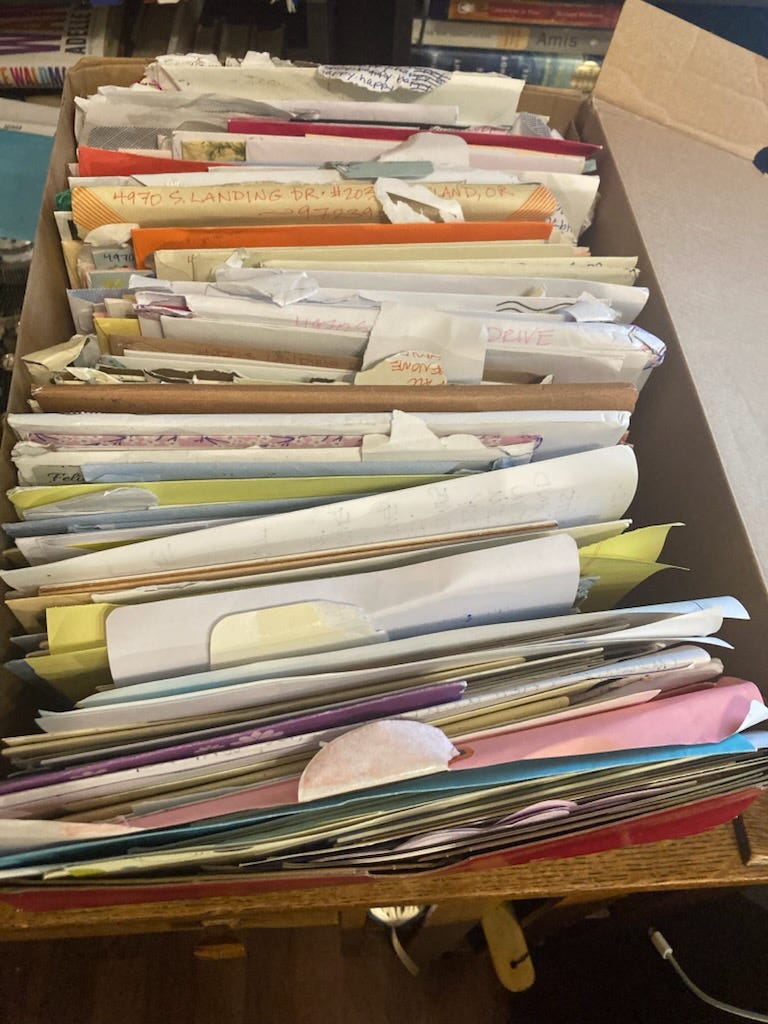Long ago, in a time when there was no internet or email and when Amazon was the name of a river, we would insert content into delivery devices called envelopes, lick and affix tiny rectangle stamps onto the corners, plop them into metal boxes, and wait for the magic: “Honey, we’ve got mail!”
The magic wands have evolved over the centuries.
From the ancient Chinese brushes and Egyptian reeds to the quills and inkwells, they have led us to today’s mighty pens: ballpoints, rollerballs, gels, and fineliners. And resting on my Nashville desk, between my Macintosh computer and laser printer, is the timeless and expressive Lewis E. Waterman invention of 140 years ago: the fountain pen, which first appeared available in a 1883-84 edition of an obscure legal directory.
In a world that insists on living on internet time and belittling so-called Snail Mail, I understand why a cursive, hand-written letter arriving via my mailbox means so much. Despite the United States’ 2010 decision to drop handwriting from its Common Core State Standards, I continue to communicate in cursive with the world. Gliding upon the fountain pen’s smooth, flowing ink, I acknowledge how those things that matter most are revealing the failures of virtual life.
A piece of handwriting is physical evidence of our existence, and once someone is gone, that loved-one’s longhand can make us feel close again.
Deciphering a sender’s identity from a return address on a birthday card or holiday greeting can be an instantaneous experience. With neither a first nor last name, the person has revealed herself with every elegant swoop of an uppercase letter and hastily-scribbled lowercase one.
Movies are filled with relatives discovering their parents old love letters and tales of anonymous Valentine notes because those events happen all-too-often in real life. But someone first needs to write them in penmanship that roller-coasters through loops and bumps and slants and waves—progressing left-to-right on the page with consonants and vowels ascending and descending on the line.
In my home office, I glance across the room and smile at the many bookshelves with shoeboxes stacked up top. Three years’ worth of cursive cards, letters, and notes from over two dozen families and friends in seven states and Washington, DC. Shoeboxes are stuffed, the lids pushed high with 415.5 postcards, 146 cards, 215 letters, a couple of notes, and several packets of poems. And I recognize all the things that electronic communication cannot even begin to accomplish, all those things that mattered most during our global lockdown.
In the early days of the Pandemic Thunderdome, postal podcast naysayers pondered the system’s demise, but I experienced the opposite. And I’m not the only one. On the back of one of the letters across the room, a lifelong friend from the West Coast asked the question: “Do you remember when we would get so excited when email was invented? And now it has come full circle…”
And from my 1980s high school English and French teacher from Kentucky: “I heard on the news the other day that postage is going up…even so, it’s one of the best bargains still extant: One can put a letter through a slot and for the price of a stamp it’s delivered to anyone in the country and for a few cents more, to anywhere in the world.
You gotta write ‘em to get ‘em.
I’d love to say that in response to all those postcards, cards, letters, and notes that I sent the same in kind. I prefer to pen long-winded replies verses many small one-and-dones. Sometimes, I type, too.
During the lockdown, my home had not been spared the Zoom-call experience.
My mom Sandy passed away early in that Age of Covid. My sisters were at her hospital bedside in zip code 40219, my brother was zooming from the hospital’s parking lot, and I was at home in 37122, participating (whatever that means) via webcam. Yes, there were calls, texts, and social media posts: all appreciated, but the Rosetta Stone that is cursive revealed its special power in the handwriting. From 97239, “Sorry to hear about your mom’s passing. It is profound to lose a parent.” More cursive sympathy from 37122, 37138, and 37363. Halfway into 2023, my grandmother’s sister Minnie died, and my wife’s father Alvin—known lovingly as Tooter—passed on: a seat at the table forever empty, prompting from the West Coast, “Please be gentle with yourself through the many stages of loss, grief, and sorrow.”
But for those of us left, sorrow and sympathy have given way to celebrations.
A dear friend in 42104 had a grandchild, and on Halloween 2022 he scribbled, “Being Lollie & Pop is just THE BEST!! When I see Rex, I say ‘You are handsome, and smart, and kind!’ He will then promptly begin to grin the biggest grin and his little eyes light up! We love him so much and it is hard to describe the feeling! Now we see all the hope and potential for his life.”
And there was a wedding: my wife’s cousin Ben and his better half, Gabriela! A SAVE the DATE card and a RSVP landed in our cul-de-sac, both from the nation’s capital, 20017, both with LOVE stamps, both cancelled...but I don’t believe it.
Throughout history, new technology has threatened our little Pony Express That Could: telegraph, telephones, fax machines, email. And that pony keeps right on going to apartment numbers and post office boxes, as well as to lanes, drives, and roads in every town in America.
Perhaps now is the perfect time to make the journey home from the world wide web to the world’s written word. And why not use fountain pens? Today, they’re required in German, French, and Swiss schools. My hope is that we all will return to the blank page and smoothly pull ink from the reservoir of our pasts, through our mailboxes, and out to our loved ones...using a fountain pen, of course.






And I am the lucky recipient of many of your missives!